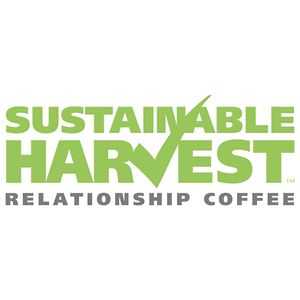It all began when Veneziano Coffee Roasters CEO Craig Dickson said to David Piza of Sustainable Harvest, “You guys are crazy if you don’t do business with Australian roasters. That’s where it’s all happening.”
Six months later, Veneziano is extremely proud to announce that it is Sustainable Harvest’s first Australian client.
The pair met at Sustainable Harvest’s Let’s Talk Coffee event in El Salvador in November 2013, where Craig presented on using specialty Robusta in creating blends in a Let’s Talk Robusta session.
David is a Colombia-based relationship coffee manager for Sustainable Harvest.
Headquartered in Portland, Oregon, USA, Sustainable Harvest is a unique coffee importer. The company pioneered the Relationship Coffee Model, which creates personal connections between producer, importer and roaster to ensure a stronger supply chain.
With a permanent presence at origin in various coffee-growing regions around the world, Sustainable Harvest already has established relationships with farmers. The company then makes the introduction from roaster or buyer to farmer.
The discussion and negotiation is totally transparent between grower and buyer; Sustainable Harvest then takes a fixed fee and coordinates the transaction.
According to David, “Our supply team sources the best available coffee produced at each origin with every harvest. Our interest lies in giving international exposure to these farmers.”
“It’s a really great concept,” says Craig. “It gives us access to different growers, we visit and tour the farm, discuss the product and requirements, Sustainable Harvest then implements all the physical aspects of the deal, such as shipping, importing and so on.”
Craig continues: “As a roaster and operator in specialty coffee, and as we experience growth and increased demand for our coffee, it means that we can uphold our stringent quality levels by getting access to quality product from new growers.”
The partnership with Sustainable Harvest, Craig says, will allow the company to continue those efforts. “We are really pleased to be partnering with Sustainable Harvest in our continuous search for quality coffee,” he says. “It suits our long-held belief that no one should have to experience a bad coffee.”
He continues: “There is a constant expectation now of buying quality beans, and we’ve seen this mentality grow from specialty roasters to the larger, traditional roast houses that buy in bulk.
This means there is pressure on growers to be more particular about harvesting and processing to produce a better bean, which can only be good for coffee and coffee drinkers as well as for the farmers themselves. Companies such as Sustainable Harvest are supporting them to this end.”
About Let’s Talk Coffee
Let’s Talk Coffee is a large annual event driven by Sustainable Harvest, bringing together supply chain partners including roasters, financiers, educational institutions and NGO representatives.
The unique aspect of this global, invitation-only event is that it’s always held in a coffee-producing country. There is always an elite roster of speakers presenting on cutting-edge topics relevant to the coffee industry.
Says David: “It benefits everybody, but particularly the growers, to hear about concerns, changes and updates in the market. It’s a great forum because we can really talk about anything and everything—even pricing.”
Let’s Talk Coffee enables growers to participate in cuppings with customers and curators and experience feedback first hand, fostering a truly collaborative supply chain.
Craig says, “We find it a really valuable exercise to cup with the producers using their own coffee. Often they don’t know where their coffee is going or where it ends up, even though as a roaster, we know exactly where it’s from.”
About Sustainable Harvest
Sustainable Harvest is unlike any other coffee sourcing and importing company. Besides introducing producers to buyers (mostly roasters), the company:
- Services customers in USA, Canada, Japan, Germany and now Australia.
- Is a specialty coffee importer of high-quality certified coffee. Ninety-three percent is organic and/or fair trade and/or Rainforest Alliance certified, and the company also deals in fully traceable organic decaffeinated coffees.
- Is a Certified B Corporation, an accolade that recognises higher ethical standards of doing business. The movement began in the US, and the framework is geared to “for profit” organisations that want to benefit society as well as their shareholders.
- Ensures that every part of a business deal is conducted with transparency and full traceability.
- Is committed to educating the growers in every aspect that affects a coffee transaction. This extends to risk management and training, setting a minimum floor price, factoring in variances and so on. This shows the farmers how to use the coffee market to their advantage.
- Has 15 Q-Certified cuppers on the books. The company trains its growers and develops their cupping skills so they can assess the quality of their own beans using simple methods, with the focus being on positive and desirable attributes.
- Offers specific education for problem solving. For example, in the case of Roya (coffee leaf rust disease), which has wiped out many coffee crops in Central and South America and Mexico, farmers are educated in topics such as how rust leaf affects beans, how to administer organic treatment and more.
- Has direct relationships with many US ‘Roasters Choice’ and ‘Roaster of the Year’ recipients, including roasters such as Stumptown Coffee Roasters from the early days of the Portland, Oregon coffee movement.
- Has a direct line of trade to other Certified B Corporation businesses with a sustainability conscience, including Ben & Jerry’s.
- Supports alternative income-generating initiatives with coffee growers in Rwanda and Central America, such as beekeeping and mushroom crops, to supplement coffee harvest revenues during non-harvest seasons.
We asked David what he thinks about Australia and the Melbourne coffee scene whilst here during MICE, and he responded: “I love how advanced your coffee culture is! It’s really amazing.”


















